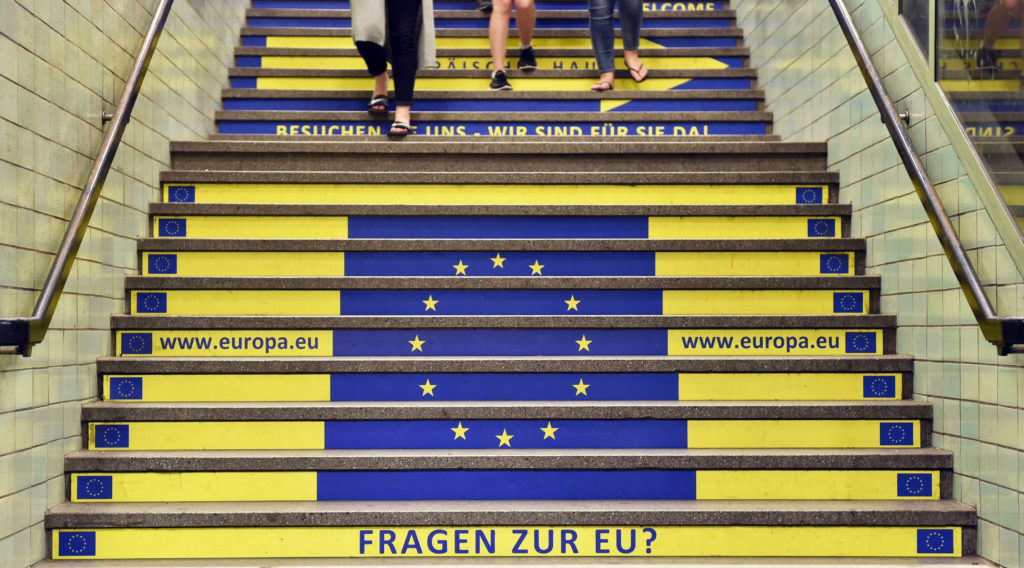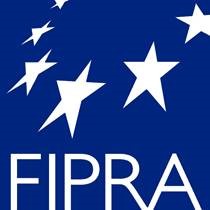
Learn from the experts at this special high-level event hosted by Robert Madelin, Chairman of FIPRA.
Participation in this event is by invitation only. Chatham House rules apply.

This high-level session was introduced by Dr. Rachel Barlow, who handed over to Robert Madelin, Chairman of FIPRA International, as moderator.
After having introduced the speakers, Robert set the scene by stating that he had seen many forms of negotiation for varying purposes including trade but that these usually followed a certain pattern set at the kickoff. For Brexit, Robert had never seen so little pattern. The viewpoints expressed seemed to come from either “thirty thousand feet in the air, or from somewhere pretty lost in the weeds”.
Brexit requires daily tracking.
The first speaker, Pekka Pesonen, Secretary General of the COPA-COGECA spoke about his experience of Brexit from the perspective of the Agri-Food sector.
He stated that he was working to minimise the impact on trade for his members. A transitional period in that context is generally favourable because it would allow time for members to adjust to the new relationship. Pekka’s presentation was then divided into 3 headings; “Budget and CAP”, “Trade” and “Standards”.
Budget and CAP:
COPA-COGECA have serious concerns about the impact on trade for European farmers and their cooperatives. The withdrawal of the UK therefore should be done in an orderly fashion.
Pekka said that the members wished to preserve the solidarity of the European Farming Community – all members share common interests. For example, farmers’ incomes are still below the level of other sectors of the economy and the recent crisis clearly showed the impact that very low prices have on farmers’ liquidity.
Trade:
The EU Agri-Food sector rests on trade. It accounts for 43 million jobs and possesses a high level of processing capacity (70% of the raw materials processed are of EU origin, 30% are not). The EU is now the biggest exporter and importer of agricultural products on the world market.
From an Agri-Food market viewpoint, the UK is well integrated into the single market. The UK’s imports in this sector are worth 57 billion Euro and 90% of these products originate in the EU. The UK exports mainly unprocessed meats, dairy products, cereals and confectionery.
The UK agri-food chain crosses the Irish channel. For example, the UK dairy industry processes raw milk in Ireland.
Pekka then took a step back to look at the bigger picture. The withdrawal of the UK would substantially change the EU market as well as the dynamics of the ongoing bilateral negotiations, in particular, the EU-Japan and EU-Mercosur processes.
Finally, EU and UK trading costs (such as tariffs and export certification) with third countries would remain the same or decrease whereas EU-UK trading would face uncertainty and most likely increased costs.
Standards:
If the UK does not recognise the regionalisation principle which applies to animal health, barriers to trade would be established.
Regarding plant protection products (PPP), maximum residues limits from the EU and third countries differ. The UK may in the future decide to apply Codex Alimentarius rules.
Finally, Pekka a noted that companies register PPPs based on the size of the market and administrative burden. Thus, the planned withdrawal of the UK may limit the availability of PPPs in some related countries, such as Ireland.
The second speaker, Tanguy van de Werve, Managing Director of the Association for Financial Markets in Europe – AFME, provided a perspective of the Finance and Banking industries.
Tanguy began by describing the particular position of this industry where Financial Services is a large part of the UK economy, but less so for most of the other 27 Member States. The red lines imposed by Brexit will entail the loss of passport rights. This loss is highly disruptive for banks serving the EU market out of London.
In the wake of the Brexit vote, AFME i) reviewed its decision-making process, ii) decided to adopt a fact-based approach (using part of their reserve funds to commission third-party research) and iii) created a Brexit subgroup of the ExCo to avoid Brexit hijacking the agenda for all ExCo meetings!
Tanguy said that they then focused on alliances or information sharing with other industries such as the insurance sector and with corporations and SMEs, stressing the negative impact of a hard Brexit on growth, financial stability, and access to finance and its cost.
“For the EU 27, the starting point is maintaining the integrity of the single market and also the broader EU project”.
There is a need to educate UK members about building the right narrative since saying that the UK is the financial engine of the EU and that London is therefore needed does not go down well with many officials on the continent.
A challenge has been to understand the balance of powers and identify who the key decision makers are. AFME has had to establish new relations with the members of the ART 50 Working Group.
Tanguy reflected then on the success of the strategy so far and noted that the awareness-raising goals were reachable, in particular with regards to the use of a transition period, the need for continuity of contracts and financial stability and the risks of the cliff edge scenario.
In preparing for a post Brexit era, London headquartered AFME accepts that this means also getting closer to Ireland, Luxembourg and other financial centres on the continent. It would also probably entail rebalancing some staff over time. AFME opened an office in Frankfurt in January 2018 and is organising more events away from London such as the annual dinner that was usually held in London but took place in Brussels this year and is to be held in Paris in 2019.
Finally, in assessing the long-term vision, Tanguy said that Brexit would undoubtedly bring fragmentation, more costs and more friction in the system. He said that this was highly regrettable not least because the real challenge lies somewhere else, in the challenges posed by technology such as the emerging fintech industry, use of big data, digitalisation and cybersecurity.
The session moved on to the case study presented by Laure Alexandre, Director Spirits and Society at SpiritsEurope, dealing with Irish cream and Irish Whiskey.
In a very succinct and clear presentation, Laure first presented some facts.
- Over 70 million bottles of Irish Cream and Irish Whiskey are exported from Northern Ireland to the EU 27 and the rest of the world. Over 100 million bottles of Irish Cream and Irish Whiskey are exported from the Irish Republic to the EU 27 and the rest of the world.
- Moreover, matured grain whiskey from the Irish Republic is blended with Irish whiskey from Northern Ireland whereas Irish whiskey blended in the Irish Republic includes matured mat whiskey distilled in Northern Ireland. Finally, 25% of milk from Northern Ireland is exported to the Irish Republic to produce cream and 75% of cream is exported back to Northern Ireland to the Irish cream whiskey production site.
“There are at least 2-3 border crossings for the production of 1 bottle of Irish cream and Irish whiskey.”
Laure then described the impact of Brexit on this product and the possibility of a hard border between Northern Ireland and the Irish Republic.
– Currently, goods can be transported between the UK and the EU under the Excise Movement and Control System (EMCS), which is a computerised system for monitoring the movement of excise goods under duty suspension in the EU. The imposition of a hard border could see the UK leaving the EMCS, thereby necessitating export declarations for each crossing, an increase in documentation, and potential delays in production if documents are not cleared or if there are restrictions at the border.
– There is currently an all-Ireland Geographical Indication (GI) meaning that Irish Whiskey and Irish Cream must be produced in line with a single technical file. The products can then be marketed as Irish, irrespective of which side of the border production takes place on. Post-Brexit, it is possible that the GI may not be legally-recognised or enforced equally on both sides of the border. Rules of origin could present a challenge, as producers may be required to define and label their product as Irish (and therefore an EU product) or British or both.
– There will also be an increase in costs due to possible tariff increases on both Irish Cream & Irish Whiskey and potential import VAT. Both products currently have a large EU market, so when the UK leaves the Single Market and the Customs Union, there will be an increase in tariffs and administration for exports to the EU-27 from Northern Ireland, as well as the need to check that goods are correctly declared.
– If the UK diverges away from the EU tariff classification system, this could create problems for company’s IT systems and stock control generally if UK Stock Keeping Units (SKU) have different CN codes than identical EU SKUs.
– Finally, delays in exporting will impact the operation of bottling facilities as storage space is limited, and although whiskey is itself non-perishable, cereal raw materials, such as barley, are more time sensitive in terms of perishability.
Laure then mentioned that scotch whiskies account for 20% of all UK food and drinks exports and that 30 % is traded with the EU. All producing companies want to avoid two product standards (one in the UK, one in the EU). She voiced concerns that costs should be kept to a minimum. For example, tariffs might be applied in the supply chain (such as 5% tax on glass bottles and corks).
The fourth and final speaker was Fergus Mc Reynolds, Director of EU affairs at the UK based EEF – The Manufacturers’ Organisation.
Fergus stated that the EEF represented many diverse industries including Automotive and Aerospace and did not really have a full EU counterpart. The EEF represents the manufacturers in the UK, NOT British manufacturers. The members deal with complex integrated supply chains. They want free and friction-less trade. In other words, they want to stay in the EU.
Fergus asked where the red lines were.
“The UK is starting from a trade viewpoint and the rest of the EU speaks in terms of protecting the single market”.
In the European manufacturing sector, there is an even share across Europe, unlike in Financial Services, where the UK is dominant. This means greater unity of vision on shared outcomes across Europe for Brexit in the sector.
In the UK, there is still 40% of companies that believe Brexit “has no impact on my business”. However, the EEF has a duty to prepare its members for all case scenarios. An initial focus will be how to deal with the chronic skills gap and how to address regulatory cooperation.
Looking to the post Brexit era, Fergus pointed out that the traditional routes of influence used by UK industry will change during 2019: there will be no access to no UK MEPs, no direct EU information from the UK government.
“The UK will become a third country lobby organisation.”
Robert Madelin then deftly led a discussion based on questions from the audience. Some key points emerged for associations:
- CHECK your statutes – do they refer to the EU members or European members? Is there a specific reference to third countries, trade agreements, members of the single market etc
- KNOW your business cycle and gain an explicit view of your sector. Do you support a longer transition period? If yes, then make your voice heard.
- What if Brexit is a symptom of what the EU lacks? What would your business sector lack post Brexit?
Speakers:
 Robert Madelin
Robert Madelin
From 2004-2016, Robert held a series of senior leadership positions at the European Commission: as Senior Adviser for Innovation, as Director General for Communications Networks, Content and Technology (CONNECT), and as Director General for Health and Consumer Policy (SANCO). For 20 years before that, Robert was a negotiator in international trade and investment, first for the UK, and then for the EU. Robert served notably in the Cabinet of European Commission Vice-President Leon Brittan. Robert studied at Magdalen College, Oxford, and at the French Civil Service College (ENA). Robert’s other current major engagement is as Visiting Research Fellow at the University of Oxford’s Department of Politics and International Relations. He is an Honorary Doctor of the University of Edinburgh, an alumnus Policy Fellow of Cambridge University’s Centre for Science and Policy, and an Honorary Fellow of the Royal College of Physicians of London. Robert is the author of ‘Opportunity Now: Europe’s mission to innovate’ (2016).
 Tanguy van de Werve – Managing Director of the Association for Financial Markets in Europe – AFME
Tanguy van de Werve – Managing Director of the Association for Financial Markets in Europe – AFME
Tanguy van de Werve is Managing Director Advocacy and joined AFME in October 2015. He is head of our Brussels office. Tanguy has 20+ years of financial services experience, of which 15 have been in the EU interest representation field. Previously he was Director General of Leaseurope and Eurofinas, the European Federations representing the leasing and consumer credit industries respectively. Under his 9-year directorship, the two organisations underwent a complete transformation and became credible, respected and effective trade associations.
 Fergus McReynolds – Director of EU Affairs at The Manufacturing Organisation – EEF
Fergus McReynolds – Director of EU Affairs at The Manufacturing Organisation – EEF
Working with MEPs, the UK Permanent Representation, the EU Commission and European partner organisations – including CEEMET – Fergus ensures that manufacturers in the UK have a strong voice when it comes to the formation of European policies. In close collaboration with EEF’s policy and external affairs team, he follows the European legislative programme and provides advice and guidance on political developments in the EU.
Fergus joined EEF as a senior climate and environment policy adviser. Before that he worked in the food industry providing guidance and analysis for dairy companies. He was instrumental in setting up the environmental target setting project, the Dairy Roadmap, in the UK.
 Laure Alexandre – Director at spiritsEUROPE
Laure Alexandre – Director at spiritsEUROPE
Laure Alexandre is Director for ‘spirits and society’ and joined in March 2011. Laure’s mission is to promote and help maintain the highest standards of social responsibility in the spirits sector across the EU and coordinate spiritsEUROPE dialogue with the European Institutions.
She oversees spiritsEUROPE responsible commercial communications practices, prevention activities and partnerships to reduce alcohol-related harm. Prior to joining spiritsEUROPE, Laure was Policy and Implementation Manager at the European Advertising Standards Alliance. She looked after the self-regulatory committee of practice and advertising, and social issues at large (advertising to children, the portrayal of gender, food and alcohol advertising…)
 Pekka Pesonen – Secretary General of COPA-COGECA
Pekka Pesonen – Secretary General of COPA-COGECA
COPA represents European farmers, and COGECA serves European agri-cooperatives, which together count more than 70 national farming organisations from across Europe. Previously, he worked as State Secretary for the Finnish Ministry for Agriculture and Forestry. In addition, Mr Pesonen has extensive professional experience in lobbying at EU level on behalf of Finnish farmers, forest owners (MTK and SLC) and agri-forestry cooperatives (Pellervo). In the 1990’s, he worked in the sales and marketing department of Valio, a Finnish dairy company. Mr Pesonen has also been a member of several high-level advisory groups concerning EU policy preparation. He is a qualified agronomist and is married with three teenage children.


